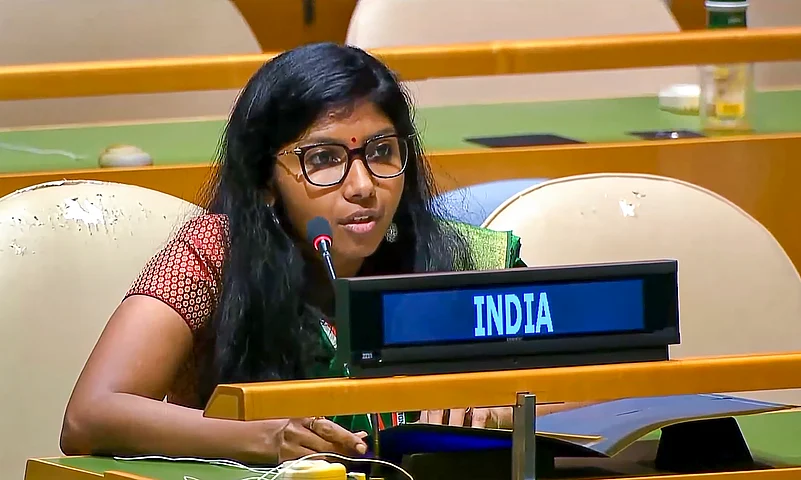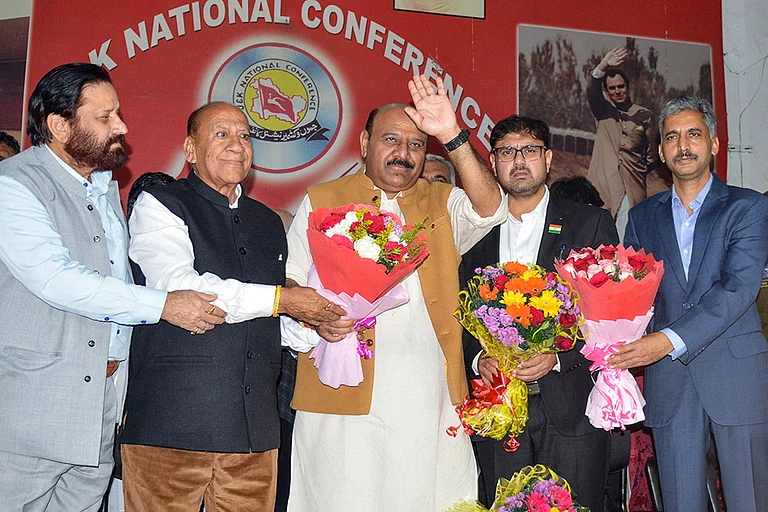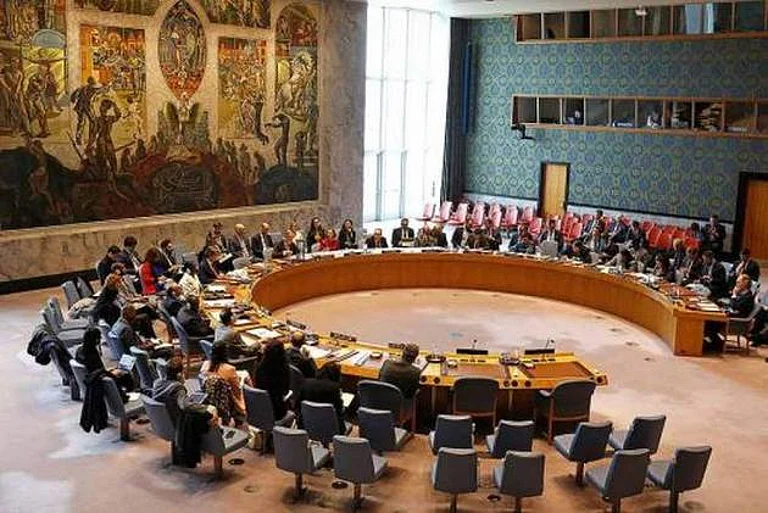In a stern response to Pakistan in the UN General Assembly, India has slammed its neighbour country, saying it should realise that cross-border terrorism against New Delhi will "inevitably invite consequences".
Exercising its Right of Reply in the United Nations General Assembly (UNGA) in New York on Friday, India responded to Pakistani Prime Minister Shehbaz Sharif, who raised the Jammu and Kashmir issue in his address at the General Debate of the 79th UNGA session.
Bhavika Mangalanandan, First Secretary in India's Permanent Mission to the UN, delivered the response and said, "This Assembly regrettably witnessed a travesty this morning. A country run by the military, with a global reputation for terrorism, narcotics trade and transnational crime has had the audacity to attack the world's largest democracy."
She asserted that for the longest time, the world has been aware of Pakistan employing cross-border terrorism as a weapon against its neighbours.
"It has attacked our Parliament, our financial capital Mumbai, marketplaces and pilgrimage routes," Bhavika said while referring to the 2001 Indian Parliament attack, 26/11 Mumbai terror attack carried out by Pakistan-based outfits.
She went to say that the list of such incidents is long, adding that, "For such a country to speak about violence anywhere is hypocrisy at its worst."
As expected, Sharif raised the Kashmir issue in his address and said that to "secure durable peace", India should reverse the abrogation of Article 370 and enter into a dialogue for a "peaceful" resolution of the matter.
India has declined Pakistan's proposals for a mutual "Strategic Restrain Regime", he said.
Notably, India's Union Home Minister Amit Shah and the central government have several times reaffirmed that Article 370 will never be reinstated.
Bhavika responded to Sharif's reference "to some proposal of strategic restrain" and asserted that there "can be no compact with terrorism. In fact, Pakistan should realise that cross-border terrorism against India will inevitably invite consequences."
Reminding that Pakistan -- for a long time -- hosted Al-Qaeda leader Osama bin Laden, Bhavika said that the country's "fingerprints are on so many terrorist incidents across the world, whose policies attract the dreads of many societies to make it their home".
"Perhaps it should come as no surprise that its prime minister would so speak in this hallowed hall. Yet we must make clear how unacceptable his words are to all of us. We know that Pakistan will seek to counter the truth with more lies. Repetition will change nothing. Our stand is clear and needs no reiteration," Bhavika Mangalanandan said.
She said that it was extraordinary for a country with a history of rigged elections to comment about political choices, that too of a democracy.
"The real truth is that Pakistan covets our territory, and in fact, has continuously used terrorism to disrupt elections in Jammu and Kashmir, an inalienable and integral part of India," the Indian diplomat asserted.
It is ridiculous that a country that committed genocide in 1971 and which oppresses its minorities even now, "dare speak about intolerances and phobias. The world can see for itself what Pakistan really is", Bhavika said.
Then, using their Right to Reply, a Pakistani diplomat responded to Bhavika and describe India's assertions as "baseless and misleading". The Pakistani diplomat said the UN Security Council, through various resolutions, has unequivocally called for a free, impartial plebiscite to enable the people of Jammu and Kashmir to exercise their inalienable right to self-determination.
Expectedly, every year Pakistani representatives rake up the Jammu and Kashmir issue in their UNGA speeches, and India fields its diplomats to deliver hard-hitting responses to Islamabad.
Notably, this comes a month after Indian External Affairs Minister S Jaishankar said that the era of uninterrupted dialogue with Pakistan is over.
He had said that India is not "passive" when it comes to the kind of relationship it can contemplate with Pakistan.
"The era of uninterrupted dialogue with Pakistan is over. Actions have consequences. So far as J&K is concerned, Article 370 is done. So, the issue is what kind of relationship we can contemplate with Pakistan...What I do want to say is that we are not passive, and whether events take a positive or a negative direction, either way, we will react...," Jaishankar said.
Jaishankar added that "neighbours are always a conundrum".
India and Pakistan have a long history of strained relations, primarily due to the Kashmir issue as well as the cross-border terrorism emanating from Pakistan.


























